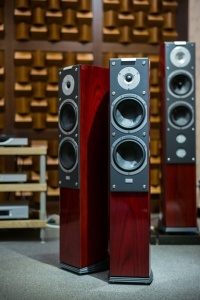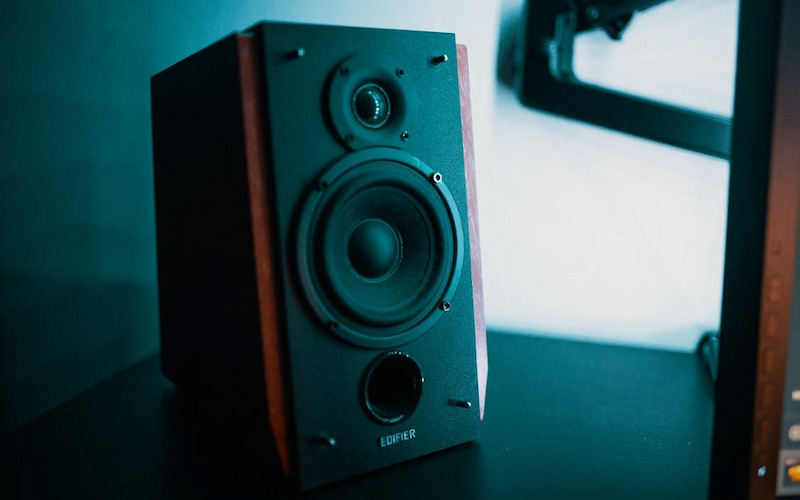Music is a big part of our lives. It’s the soundtrack to our memories and emotions, and it connects us with one another. There are many different types of speakers available to enjoy your tunes. If you’re in the market for an audio speaker, make sure you understand your needs before making your purchase. Here are some tips on how to choose the perfect speaker for your lifestyle.
Get to know your needs
There are two types of speakers: portable and home speakers. Home speakers require a power source and will need to be plugged in, which is not ideal for on-the-go use.
Portable speakers often come equipped with a rechargeable battery that can last up to 10 hours before needing a charge. And while they may only produce sound in one direction, they’re perfect for outdoor activities like camping or hiking.

If you plan to take your speaker outdoors, keep in mind the material the speaker is made from and how it will respond to weather conditions. You may want to go with rubber or plastic instead of fabric, as fabric can easily get wet and damaged by the sun.
For personal listening, we recommend using earphones because they’re more discreet and won’t disturb people around you. They also don’t require any external power source like a speaker does.

Know the basics of speakers
The three terms you should know when purchasing a speaker are “active” “passive” and “built-in.”
Active speakers are powered by an internal amplifier or small amplifier, which is usually about half the size of the speaker and plugs into a wall outlet. They’re usually heavier and more expensive than passive and built-in speakers. Passive (or unpowered) speakers don’t require an external power source, but they need to be connected to an amplifier. Built-in speakers can be found in home audio systems and televisions. These come pre-loaded with an amplifier so there’s no need to plug anything in as long as you have it connected to your TV or receiver.
Consider your budget
One of the first questions to ask yourself is about your budget. How much are you willing to spend on a speaker? Be realistic about how much you’re willing to spend—you don’t want to purchase a high-end speaker if you can only afford a low-end one.
If you have a higher budget, then this might give you more options for speakers that are more advanced in features and build quality. However, if you have a lower budget, then this may restrict your choices to more affordable speakers with less features.
Take a look at speaker features
There are a lot of features and specifications to consider when purchasing an audio speaker. Understanding what you need before buying will help you find the perfect speaker. Here are some of the most important speaker features to consider:
– Sound quality: Determining how high the quality of sound is on your new speaker is one of the most important factors to look at. There are many different types of speakers with different sound ranges, so it’s important to know what you want and what you don’t want. For example, Bluetooth speakers provide lower quality than stand-alone speakers and may not be as loud as some other options.
– Size: Larger speakers sound better than smaller ones, but they also take up more space in your home or office. If size is a concern for you, try looking into Bluetooth speakers that can easily be plugged into any device with a USB port or even stream wirelessly from your phone.
– Battery life: Portable Bluetooth speakers often only last for around six hours on a single charge, but larger home theater models can last for days without needing to be plugged in again. USB charging options are common nowadays, so consider this feature when shopping around for your next speaker purchase.
Sound Quality
The first thing you should know about selecting the right speaker is sound quality. There are speakers that are geared for different types of listeners, so it’s important to find one that suits your needs. If you’re looking for a good sound experience, consider purchasing a speaker with high fidelity audio. However, if you want the best sound quality, audiophile speakers are your best choice.
Connectivity options
Want to listen to music while you’re at the beach or relaxing in your backyard? You might want to choose a speaker with Bluetooth capabilities. Or, if you’re more of an audiophile who wants to connect their speaker directly to their laptop, you might want to go with a wired connection.
Battery Life
Many speakers today charge via USB or with a power adapter. That means you’ll be able to use it wherever you are, as long as you have an outlet or your phone’s charger handy.
However, some speakers are bluetooth-enabled and only work with a device that is bluetooth-compatible.
If you’re looking for a speaker that can go anywhere with you, make sure it has battery life. A speaker that runs on batteries will allow for more flexibility in where and when you can play your music.
Tips on how to choose the right speaker for you

If you’re looking for an on-the-go speaker, then you should consider Bluetooth speakers. They are lightweight and easy to carry around for all your travels or outdoor adventures. Plus, they can give you up to 10 hours of play time so you never have to worry about your tunes running out.
If the size of the speaker is important to you, then check out our post on small wireless speakers . You’ll get plenty of options to choose from that are compact but still provide an excellent listening experience.
If sound quality is important to you, then look at our post on high-quality audio speakers. These speakers will deliver crisp and clear sound without any distortion even at high volumes.
However, there are some things that go into choosing a speaker that might not be obvious at first glance. For example, the frequency response is an important factor in sound quality when it comes to speakers. The frequency response dictates how loud or soft certain frequencies can be played back. A wide frequency response means that low frequencies will be heard at louder volumes while higher frequencies will also be heard at softer volumes.

